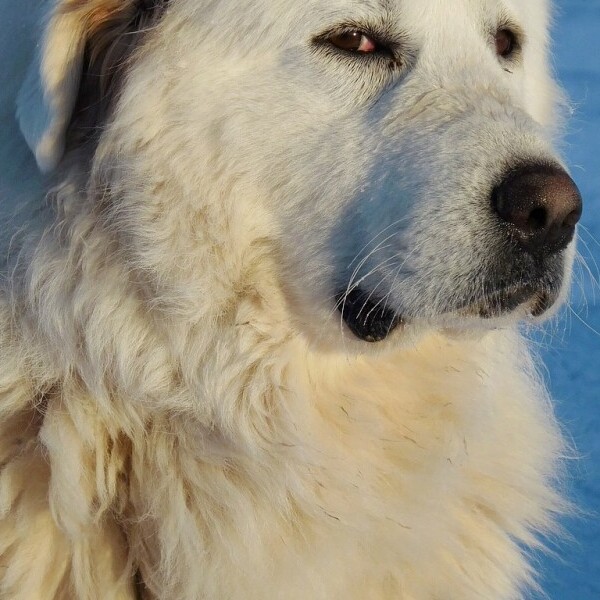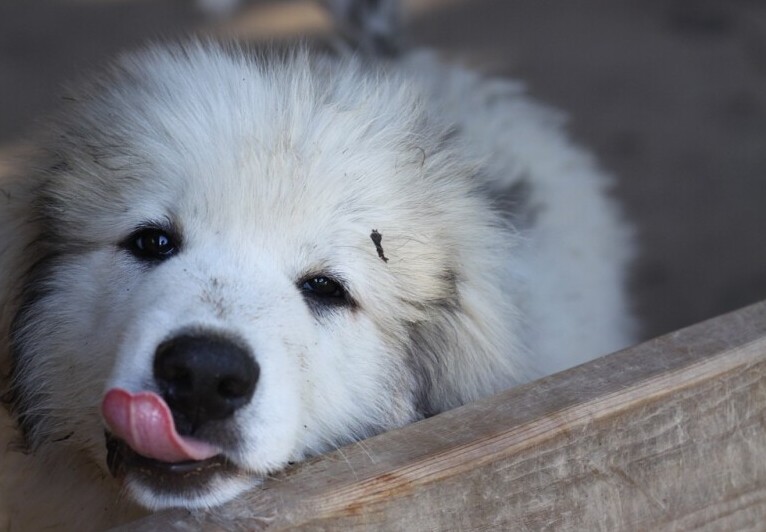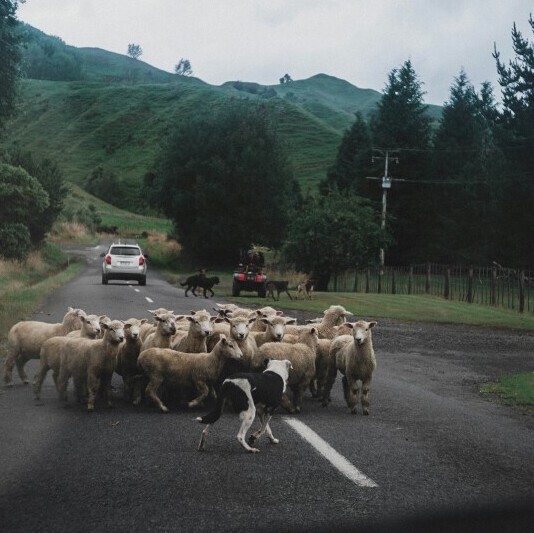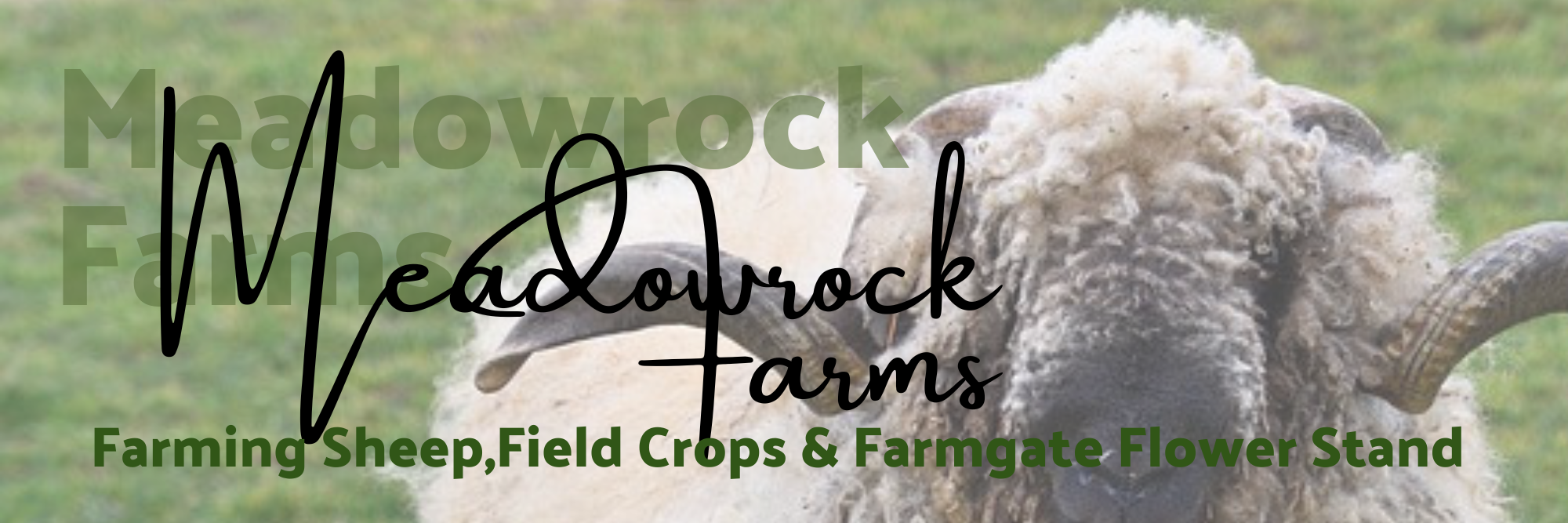Your cart is currently empty!
Great Pyrenees; Guardians Of The Flock
 The Great Pyrenees, known for their majestic appearance and gentle demeanor, have long been revered as exceptional livestock guardian dogs (LGDs). Originally bred in the mountainous regions of Europe, specifically the Pyrenees Mountains that straddle France and Spain, these dogs have been integral to shepherding traditions for centuries. In today’s context, their role as protectors of sheep flocks has expanded, necessitating an understanding of their behavior, adaptability, and the challenges they may face in modern rural settings.
The Great Pyrenees, known for their majestic appearance and gentle demeanor, have long been revered as exceptional livestock guardian dogs (LGDs). Originally bred in the mountainous regions of Europe, specifically the Pyrenees Mountains that straddle France and Spain, these dogs have been integral to shepherding traditions for centuries. In today’s context, their role as protectors of sheep flocks has expanded, necessitating an understanding of their behavior, adaptability, and the challenges they may face in modern rural settings.
Understanding the Great Pyrenees
The Great Pyrenees is a large, powerful breed, typically weighing between 85 to 115 pounds. With a thick double coat that can be white or various shades of gray, they are well-suited to withstand harsh weather conditions. Their large size and imposing presence deter potential predators, making them ideal guardians for livestock.
 Despite their formidable appearance, Great Pyrenees are known for their calm and affectionate nature. They are inherently protective but are also gentle, making them excellent companions for sheep. Their temperament is characterized by independence, loyalty, and a strong instinct to protect their flock. This independence is a double-edged sword; while it allows them to make decisions on their own, it can also lead to a tendency to wander.
Despite their formidable appearance, Great Pyrenees are known for their calm and affectionate nature. They are inherently protective but are also gentle, making them excellent companions for sheep. Their temperament is characterized by independence, loyalty, and a strong instinct to protect their flock. This independence is a double-edged sword; while it allows them to make decisions on their own, it can also lead to a tendency to wander.
The Habit of Wandering
One of the most notable characteristics of Great Pyrenees is their propensity to roam. This behavior stems from their instinctive need to patrol a large territory and keep an eye on potential threats. In a natural setting, these dogs can traverse vast distances, ensuring that no intruder approaches their flock. However, in a modern farming context, this wandering can pose challenges.
When Great Pyrenees do not have sufficient space or stimulation, they may wander off the farm, leading to potential conflicts with neighbors, traffic hazards, or even encounters with wildlife. This habit necessitates careful planning by farmers to provide adequate boundaries and enrichment to keep the dogs engaged and close to their charges.
Protecting the Flock
The primary role of the Great Pyrenees as a livestock guardian is to protect sheep from predators, including coyotes, bears, and even domestic dogs. Their presence alone is often enough to deter many threats. When faced with a predator, the Great Pyrenees will bark loudly, alerting the shepherd and potentially scaring off the intruder. If necessary, they will confront the threat, utilizing their strength and size to defend their flock.

Their innate ability to distinguish between friend and foe is vital. Great Pyrenees are usually friendly with family pets and livestock but will react aggressively to any perceived danger. This discernment is crucial, especially in rural areas where domestic dogs may roam off-leash, presenting a risk to both the livestock and the guardian dogs themselves.
Rural Living and Neighborly Considerations
In rural areas where residential homes are built near farms, the presence of Great Pyrenees can raise questions about compatibility with local communities. While these dogs are generally non-aggressive towards humans, their size and protective instincts can be intimidating. Farmers must ensure that their dogs are well-trained and socialized to minimize potential conflicts with neighbors.
Moreover, it is essential for farmers to educate the public about the role of LGDs. By fostering understanding and cooperation, communities can better coexist with these noble protectors. Responsible dog ownership, including proper fencing and supervision, will help mitigate concerns about wandering and aggression.
The Consequences of Wandering Off Farm
When Great Pyrenees wander off the farm, it can result in various consequences. From a safety perspective, they may encounter traffic or wildlife, which could lead to injury or death. Additionally, wandering can lead to conflicts with neighboring properties, particularly if the dogs venture into gardens or interact with other pets.

From a legal standpoint, there are implications as well. In Ontario, farmers are responsible for the actions of their dogs, and if a dog causes damage or injury while off the property, the owner may be held liable. This underscores the importance of training and containment strategies for LGDs to ensure they remain within safe boundaries.
Laws Covering Livestock Guardian Dogs in Ontario
In Ontario, the use of livestock guardian dogs is governed by several laws and regulations that relate to animal welfare and public safety. According to the Animal Welfare Services Act, owners must provide adequate care, which includes proper housing, nutrition, and the ability to express natural behaviors. This means that Great Pyrenees should have access to sufficient space and stimulation to prevent excessive wandering.
Additionally, municipal by-laws may regulate the keeping of dogs in residential areas. These laws can vary significantly by region, often addressing issues related to noise, leash requirements, and the containment of animals. Farmers must familiarize themselves with local regulations to ensure compliance while effectively utilizing LGDs.
Historical Context and European Roots
The Great Pyrenees breed has a rich history that dates back thousands of years. Bred by shepherds in the Pyrenees Mountains, they were essential companions for those tending to flocks in rugged terrain. Their ability to work independently, combined with their loyalty to the flock, made them indispensable in protecting sheep from predators.

Over time, the Great Pyrenees spread throughout Europe and eventually made their way to North America, where they were embraced for their guarding abilities. As farms expanded and sheep farming became more prevalent, the breed proved to be a great addition to large farms, where they helped safeguard livestock grazing on hills and open pastures.
Conclusion
The Great Pyrenees is more than just a beautiful breed; they are dedicated guardians of livestock, particularly sheep. Their gentle demeanor, combined with their protective instincts, makes them unique among dog breeds. However, their tendency to wander presents challenges that require thoughtful management, especially in rural areas where they coexist with residential communities.
Farmers who choose to incorporate Great Pyrenees into their livestock management must be aware of their habits and the legal responsibilities associated with their care. Educating the public about the role of LGDs can promote harmony between farmers and their neighbors, fostering an environment where both humans and animals can thrive.
As we continue to navigate the complexities of modern farming and community living, the Great Pyrenees stands as a testament to the enduring bond between humans and dogs—a partnership built on trust, protection, and shared purpose in the beautiful tapestry of rural life.
Tags:

Leave a Reply